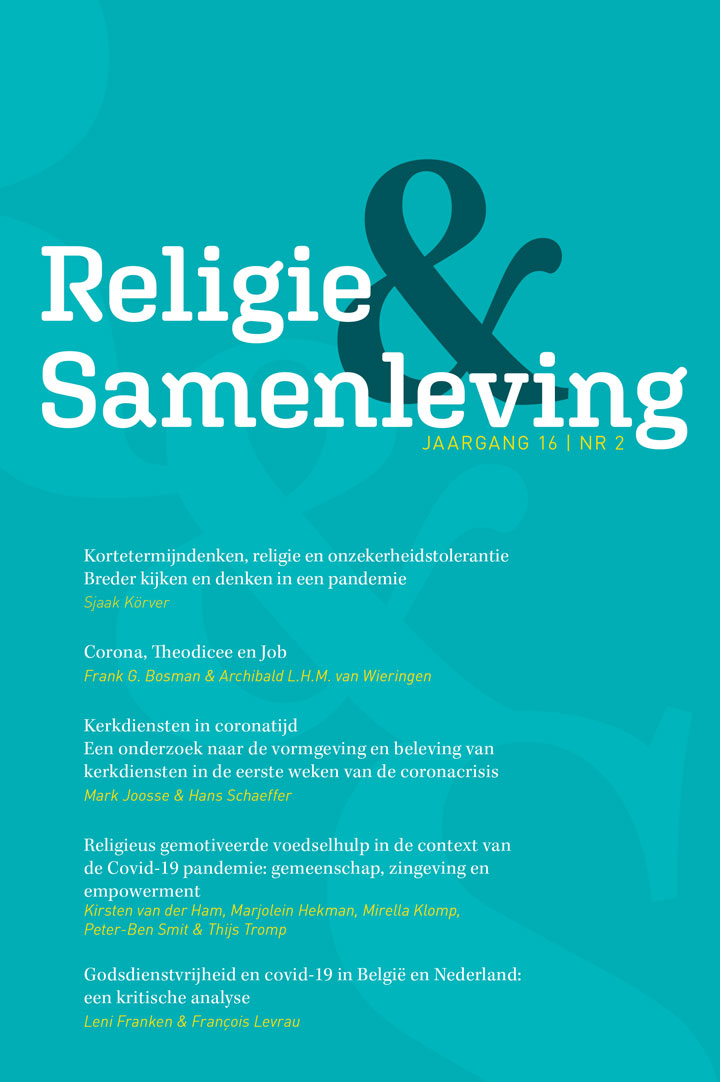Religieus gemotiveerde voedselhulp in de context van de Covid-19 pandemie
Gemeenschap, zingeving en empowerment
DOI:
https://doi.org/10.54195/RS.11483Samenvatting
Before the Covid-19 crisis, churches organized many activities in church building, De Nieuwe Stad in Amsterdam Zuidoost, including serving free meals for everyone who wanted them. When this was no longer possible because of the Covid-19 measures, the international churches Treasures International Ministries and Maranatha Community Transformation Centre and Diaconie Evangelisch-Lutherse Gemeente Amsterdam decided to work together and start delivering meals to people’s houses. As one, relatively small project, operating alongside other aid initiatives, the meals project soon received many more enlistments than anticipated, and the Covid-19 crisis lasted longer than expected, which raised questions regarding the underlying needs and how to proceed in the long term. Together with researchers, they started a practical theological research project. On the basis of this project, that included action research, this article describes the meals project, its context and the research method that was employed. It makes clear how these meals expressed and shaped 1) social connections between people, 2) a meaningful life, 3) empowerment of people, and reflects on these themes from a diaconal perspective. The article intends to contribute to the conversation on the role that churches (could) play in society during a pandemic.




